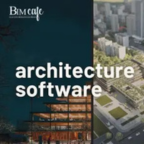
Author: Devika R
July 30, 2024
4 Min Read
Building Information Modeling (BIM) has revolutionized the construction industry, and webinars have emerged as a popular platform to disseminate knowledge about this transformative technology. While these online sessions offer numerous advantages, they also have limitations. Let’s delve into the pros, cons, and potential improvements of BIM webinars and the level of awareness and perception among students and professionals.
The Pros of BIM Webinars
- Accessibility: Webinars break down geographical barriers, allowing professionals and students worldwide to access expert knowledge and insights.
- Cost-effective: Webinars are generally more affordable than in-person seminars, saving participants time and money.
- Flexibility: Participants can attend webinars at their convenience, fitting them into busy schedules.
- Interactive elements: Many webinars incorporate polls, Q&A sessions, and chat features, fostering engagement and interaction.
- Content availability: Recordings of webinars can be made available for future reference, allowing participants to revisit key points.
The Cons of BIM Webinars
- Lack of hands-on experience: Webinars primarily focus on theoretical knowledge, limiting opportunities for practical application.
- Technical difficulties: Issues with internet connectivity or platform performance can disrupt the webinar experience.
- Limited interaction: While webinars offer some interactive elements, they cannot fully replicate the dynamic nature of in-person discussions.
- Information overload: Some webinars may cover too much material, making it difficult for participants to absorb all the information.
- Difficulty gauging audience engagement: It can be challenging to assess participant engagement and understanding through online platforms.
Improving BIM Webinars
However, the BIM landscape has evolved. Platforms like BIM Cafe Learning Hub have pioneered innovative approaches to address these limitations. By incorporating interactive exercises, live demonstrations, and robust Q&A sessions, they have transformed the webinar experience, offering a more engaging and comprehensive learning journey.
To enhance the learning experience, BIM Cafe Learning Hub has implemented several innovative approaches:
- Hybrid Learning Models: Combining online and in-person components to provide a well-rounded learning experience.
- Interactive Elements: Integrating practical exercises and simulations to bridge the gap between theory and practice.
- Focused Group Discussions: Creating smaller groups for in-depth discussions to facilitate knowledge sharing.
- Continued Support: Offering post-webinar resources and mentorship to foster long-term learning.
- Valuing Feedback: Continuously seeking participant input to refine the webinar format.
Through these advancements and best practices, the BIM webinar format is steadily maturing, providing a valuable platform for knowledge transfer and skill development within the construction industry.
BIM Webinar Awareness and Perception
The awareness and perception of BIM webinars vary among students and professionals. While many recognize the value of these online sessions, there is still room for improvement.
- Students: Students often find BIM webinars helpful for gaining theoretical knowledge and understanding industry trends. However, they may require more practical training and opportunities to apply BIM software.
- Professionals: Professionals generally appreciate the convenience and accessibility of BIM webinars. However, they often seek more in-depth discussions and case studies to address specific challenges.
Bridging the Gap
To maximize the impact of BIM webinars, bridging the gap between theoretical knowledge and practical application is essential. This can be achieved by:
- Collaborating with industry experts: BIM Cafe has direct access to a pool of industry veterans as an integral part of a BIM services company. These experts bring real-world challenges and innovative solutions to the table, enriching our webinars with practical insights. Their firsthand experience ensures that the content is academically sound and industry-relevant.
- Offering hands-on workshops: Beyond theoretical discussions, BIM Cafe offers a range of hands-on workshops and training programs. These sessions are designed to equip participants with the practical skills needed to implement BIM effectively. By combining classroom learning with practical exercises, we empower individuals to confidently apply their knowledge to real-world projects.
- Fostering a Collaborative Community: BIM Cafe actively cultivates a strong online community where participants can interact, share experiences, and learn from each other. This collaborative environment encourages knowledge-sharing and problem-solving, fostering a deeper understanding of BIM principles.



